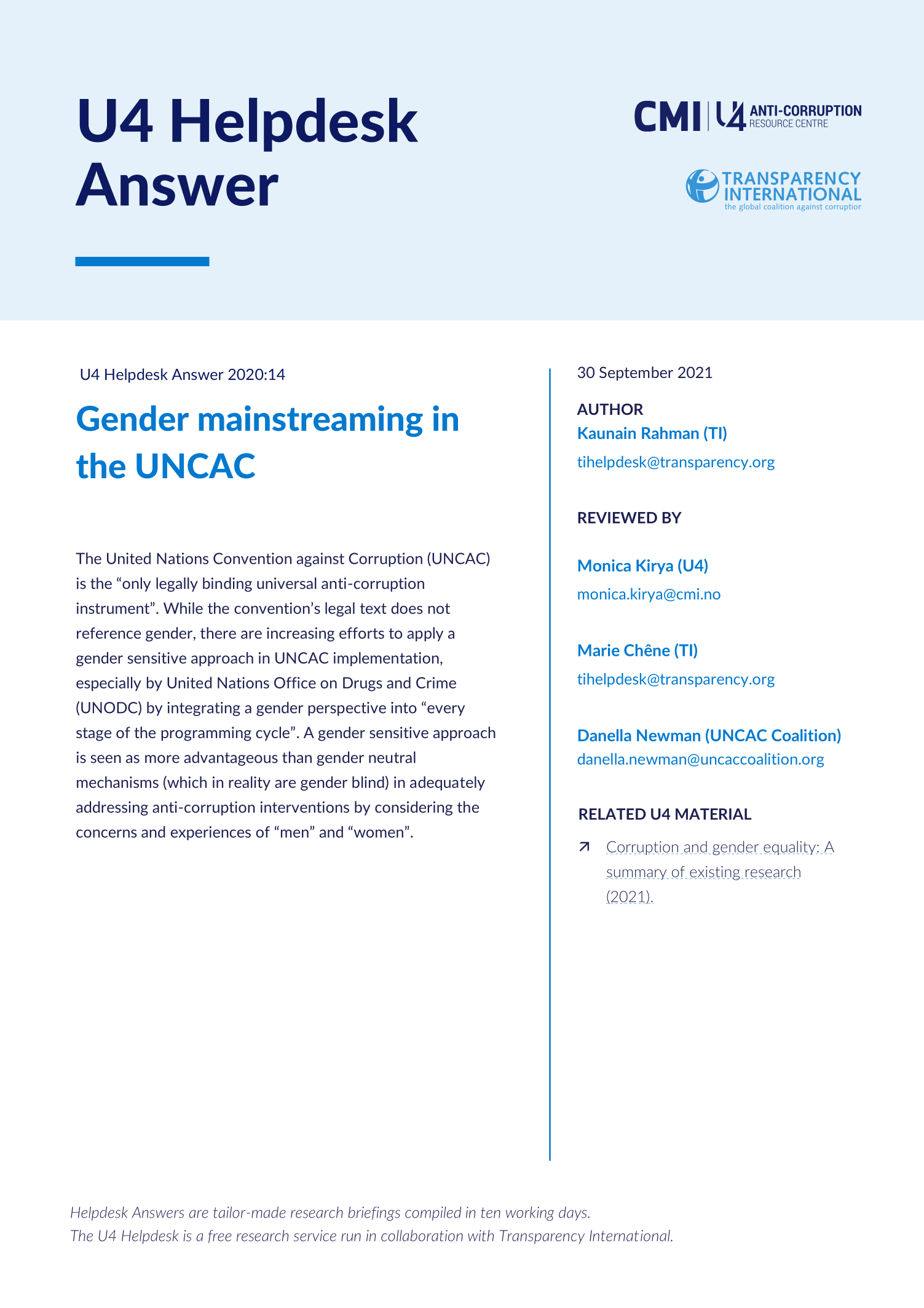Main points
- The UNCAC’s legal text does not reference gender, and women or gender are taken into consideration in only three resolutions from the UNCAC’s Conference of the States Parties.
- Gender mainstreaming must go beyond looking at gender as a single dimension to include intersectional factors such as age; sex; sexual orientation; gender identity and expression; race and ethnicity; and religion or belief.
- Recognition of gendered forms of corruption, such as sexual extortion (sextortion), which disproportionately affects women, is vital to addressing the impacts of corruption on more vulnerable groups.
- Collecting gender-disaggregated data, adopting specific resolutions on gender and corruption, cooperation and synergies with other international processes and bodies, and strengthening attention to gender in UNODC’s programmes are illustrative entry points to mainstreaming gender in the UNCAC process.

